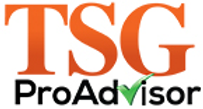Tax professionals constantly face changing laws, complex cases, and strict deadlines that push their limits and demand creative problem-solving. Traditional learning methods often lack the flexibility needed to address real-world challenges, leaving many professionals seeking practical solutions. What if there was a way to gain fresh insights while strengthening your expertise and professional network?
Peer learning brings tax professionals together, creating opportunities to exchange knowledge and tackle challenges collaboratively. Whether you are new to the field or highly experienced, this collaborative approach can redefine your journey in taxation. Curious how peer learning works and why it matters? Read on—you might discover the key to thriving in an ever-evolving profession.
1) Why is Peer Learning Important in the Tax Profession?
Many professionals struggle with burnout from balancing casework, compliance requirements, and their need for continuous learning. Traditional methods of staying updated often miss the practical insights required to address real-world problems effectively.
Peer learning offers a dynamic solution, enabling professionals to collaborate, share experiences, and find innovative ways to tackle challenges. By learning from others who have faced similar issues, tax professionals can gain fresh perspectives and practical strategies. This approach helps reduce stress, improve efficiency, and create a supportive environment for growth. Embracing peer learning equips professionals to handle the fast pace of the tax profession with confidence and adaptability. IRS Newsroom – Provides the latest updates and announcements about tax laws, regulations, and policies.
2) Major Benefits of Peer Learning in Taxation
 Peer learning goes beyond sharing information—it builds a sense of community and collaboration within the tax profession. By working together, tax professionals not only strengthen their expertise but also find innovative ways to tackle challenges and grow.
Peer learning goes beyond sharing information—it builds a sense of community and collaboration within the tax profession. By working together, tax professionals not only strengthen their expertise but also find innovative ways to tackle challenges and grow.
-
Knowledge Sharing
Peers share insights that help professionals stay updated with ever-changing tax laws and rulings. For instance, discussing recent regulatory changes can expose new approaches to compliance. Colleagues often exchange tips or interpretations that clarify complex aspects of tax law.
-
Enhanced Problem-Solving
Collaborative brainstorming creates fresh solutions for client challenges, blending diverse expertise into innovative approaches.
Imagine facing a unique tax issue and resolving it through a colleague’s experience in a similar situation. A team’s combined perspective often provides a practical solution that an individual might overlook.
-
Faster Skill Development
New tax professionals quickly gain knowledge by learning directly from experienced colleagues who share real-world advice and shortcuts. Veterans also benefit from fresh insights or approaches shared by those newer to the field. Mentorship accelerates growth as it connects individuals with diverse experiences and perspectives.
-
Increased Confidence
A supportive network empowers professionals to make clear, decisive choices without hesitation. Confidence improves communication, which helps build stronger trust with clients and peers alike. Knowing help is available makes even challenging cases more manageable and less intimidating.
-
Stronger Professional Networks
Collaborating leads to long-term relationships that result in future partnerships and opportunities. Networks built through peer learning often translate into referrals or new career connections. Strong bonds within the field ensure mutual support and shared success.
-
Collaborative Work Environment
Peer learning promotes teamwork, creating a workplace where everyone supports growth and progress. A collaborative environment often boosts morale and inspires individuals to contribute their best work. Teams that work together tend to deliver consistent and effective results.
-
Better Client Outcomes
Clients benefit from the combined expertise of professionals who learn from one another. Peer collaboration ensures clients receive comprehensive, well-rounded service for complex tax issues. Satisfied clients appreciate solutions that arise from collective knowledge and effort.
If you are looking for a way to stay ahead in your profession, explore the IRS Nationwide Tax Forums. These forums offer access to expert-led sessions, practical training, and networking opportunities that can enhance your skills and broaden your professional network.
3) Practical Ways to Implement Peer Learning
 Peer learning becomes powerful when approached with intention and structure. Here are five practical ways to integrate it into your work:
Peer learning becomes powerful when approached with intention and structure. Here are five practical ways to integrate it into your work:
-
Mentorship Programs
Pair experienced professionals with less experienced ones to create meaningful mentorship relationships. Mentors can provide guidance while mentees offer fresh perspectives.
-
Knowledge Sharing Sessions
Organize regular sessions where colleagues discuss tax updates, share successful case strategies, and brainstorm solutions for challenges everyone may face.
-
Online Communities and Forums
Join professional online groups or platforms that allow tax professionals to connect, ask questions, and share experiences regardless of location.
-
Workshops and Seminars
Host or attend industry-specific events that promote group learning, enabling participants to exchange ideas and expand their expertise together.
-
Collaborative Projects
Work on cases as a team, combining different skill sets and insights to tackle complex problems effectively while learning from one another. The Taxpayer Advocate Service (TAS) provides practical resources and tools to address compliance challenges and support collaborative problem-solving. Explore their site to see how their services can enhance peer learning and strengthen your tax practice.
4) Overcoming Barriers to Peer Learning
Implementing peer learning can face a few challenges, but thoughtful strategies can help overcome them. Here is how:
Address Competition Among Peers
- Encourage a mindset that focuses on shared success rather than individual achievements.
- Create team goals that highlight collaboration, showing how everyone benefits from working together.
- Reinforce the value of diverse perspectives by celebrating contributions that improve outcomes for clients or the organization.
Manage Time Constraints
- Set aside specific times for peer learning, such as weekly knowledge-sharing sessions or monthly brainstorming meetings.
- Integrate learning opportunities into existing workflows, like discussing cases during team check-ins or after projects are completed.
- Use technology, such as collaborative platforms or forums, to enable efficient knowledge exchange without requiring extra time.
Foster Trust and Openness
- Build a culture of respect where sharing ideas and asking questions feels safe and encouraged.
- Offer team-building activities to strengthen connections and create a supportive atmosphere.
- Lead with transparency by sharing your own learning experiences and challenges to inspire openness in others.
Provide Recognition and Incentives
- Recognize employees who contribute to collaborative learning through verbal appreciation or team awards.
- Offer professional development opportunities, such as attending workshops or courses, as a reward for active participation.
Make Peer Learning Accessible
- Ensure everyone has opportunities to engage, whether through small group discussions, mentorship programs, or online learning communities.
- Adapt peer learning methods to match the team’s unique needs and preferences, making it a natural fit for your workplace.
Frequently Asked Question
 1. Why is peer learning better than individual learning in this field?
1. Why is peer learning better than individual learning in this field?
Peer learning provides diverse perspectives, enabling you to solve complex tax issues more efficiently. It encourages collaboration, sparks innovative solutions, and boosts confidence with real-world insights and practical strategies. This approach builds a supportive network for future challenges.
2. Can peer learning benefit small tax firms?
Small tax firms have fewer resources, so peer learning helps improve skills without expensive tools. Team members collaborate, share updates, and train each other, building stronger bonds and delivering better results.
3. How do I start a peer learning program in my workplace?
Create a space where team members feel comfortable sharing knowledge and asking questions. Schedule regular sessions to discuss updates and challenges. Encourage open communication, allowing everyone to contribute and feel valued. Use shared documents or virtual forums to support collaboration.
How TSG Pro Advisor Can Help You Adopt Peer Learning in the Tax Profession
TSG Pro Advisor can help you utilize peer learning in the tax profession by providing expert guidance and resources.
- Expert Support: TSG Pro Advisor offers practical insights on staying updated with tax laws through collaborative learning.
- Efficient Solutions: The team helps you implement peer learning strategies to solve complex tax challenges faster and more effectively.
- Networking Opportunities: TSG Pro Advisor connects you with experienced professionals, expanding your network for shared knowledge and opportunities.
- Skill Enhancement: With guidance from TSG Pro Advisor, your team can improve skills and work more efficiently on challenging cases.
For personalized support and to learn how peer learning can benefit your tax practice, contact us today.



